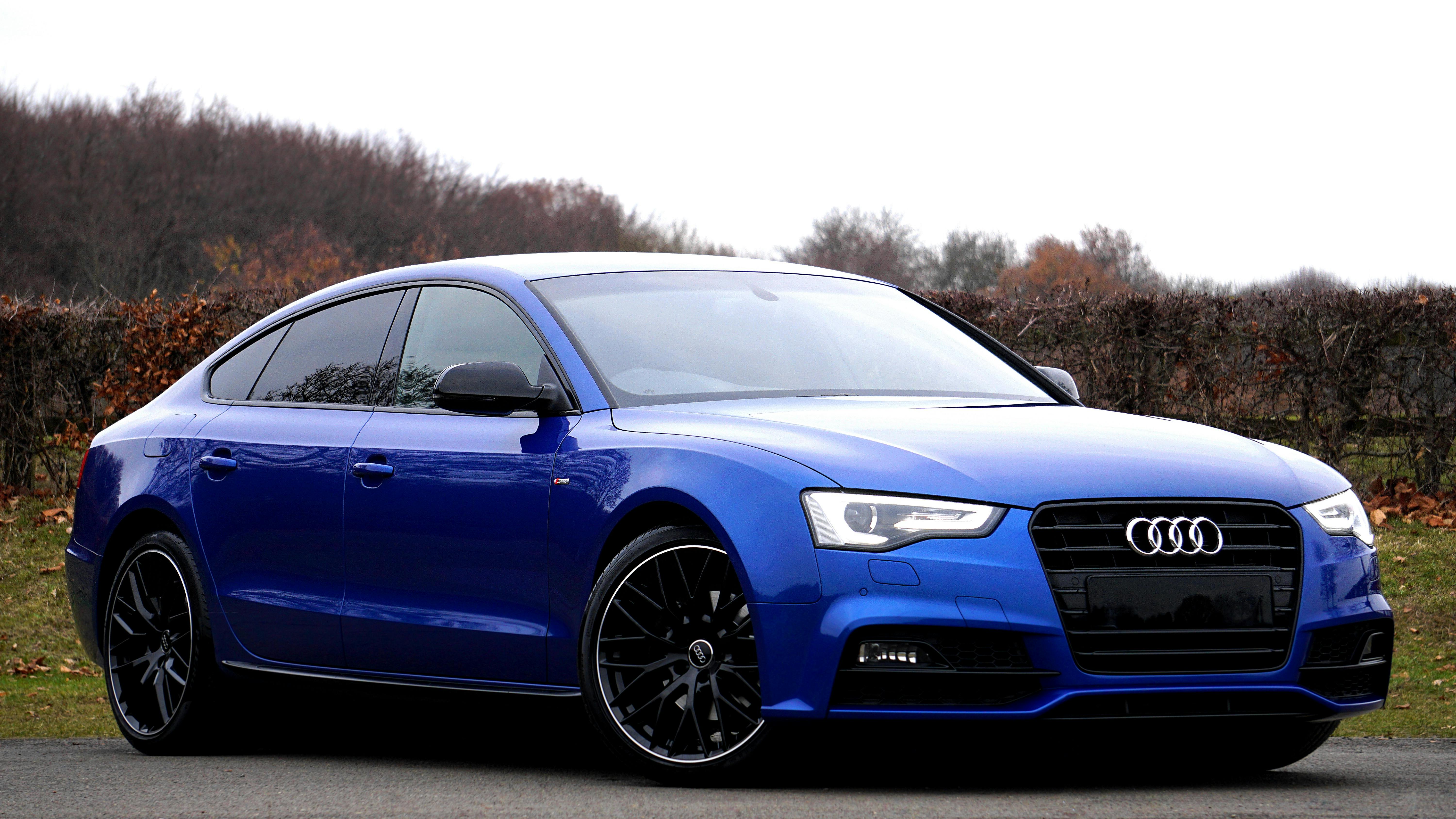When you hear about a car crash Milwaukee today, it often brings a moment of pause, doesn't it? That kind of news, you know, it makes you think about your own drive, your family, and just how quickly things can change on the road. It’s a serious thing, a moment that can shift someone's whole day, or even their life, in a heartbeat. So, we're talking about something that affects everyone who shares our streets, whether they're driving, riding along, or just walking by.
This kind of event, a road incident in a busy place like Milwaukee, can mean a lot of different things. It might be a small fender bender that just causes a little delay for your morning commute, or it could be something much more significant, something that truly impacts the flow of traffic for hours. People are often looking for quick information, like "is that why I'm stuck?" or "what happened over there?" And that's pretty natural, to be honest; we all want to stay in the loop about our surroundings.
So, this article aims to give you a bit of a rundown on what such an event could mean, how it touches our everyday lives, and, importantly, what we can all do to be a part of safer roads. We'll also touch on some of the practical bits, like what happens after an incident and how things like car insurance play a role, because, you know, that's a big piece of the puzzle for many of us, especially if you're like me, trying to figure out any good cheap car insurances that won’t make your wallet cry. We'll try to keep things clear and helpful, too it's almost a guide for understanding the road ahead.
Table of Contents
- Understanding Road Incidents in Milwaukee
- Navigating the Aftermath: Practical Steps
- Preventing Future Incidents: Driving Smart in Milwaukee
- Milwaukee's Roads: A Shared Responsibility
- Frequently Asked Questions About Milwaukee Road Incidents
Understanding Road Incidents in Milwaukee
When we talk about a car crash Milwaukee today, we're really talking about a moment that gets everyone's attention. It's something that happens pretty often on busy city streets, sadly. People are usually searching for updates because they want to know if their route is clear, or if someone they know might be affected. It's a natural human reaction to want to understand what's going on around you, especially when it involves something as central to daily life as getting around.
These incidents, big or small, are a stark reminder of how complex driving can be. It's not just about knowing how to work the pedals and the wheel; it's also about, you know, driving among other drivers. You've got to anticipate their moves, try to guess what they might do next, and react quickly. That's the part that's truly hard, actually, the constant mental chess match with everyone else on the road.
The Immediate Aftermath: What Happens Next?
If there's a car crash Milwaukee today, the first thing that usually happens is that emergency services get called. That means police, fire, and maybe medical teams heading to the spot. Their main job is to make sure everyone is safe, to help anyone who might be hurt, and to try and clear the road so traffic can start moving again. It's a pretty intense situation for those involved, and for the first responders, too it's almost a rapid response to chaos.
Then, the authorities will start to figure out what happened. They'll look at the scene, talk to anyone who saw it, and gather information. This part is really important for understanding why the incident occurred and who might be at fault. For drivers involved, this can be a rather stressful time, as they're trying to process what happened while also dealing with official questions.
Community Impact and Traffic Flow
A road incident, especially a significant car crash Milwaukee today, can throw a real wrench into the daily rhythm of the city. Traffic can back up for miles, making people late for work, school, or appointments. It's not just about the direct spot of the crash; the ripple effect can spread across many different roads, as people try to find alternate routes. This kind of disruption is why people often check their phones for updates, trying to figure out the best way to get where they need to go.
Beyond the traffic, there's also the emotional impact on the community. Seeing an accident, or even just the aftermath, can be upsetting. It serves as a stark reminder of the risks we all face when we're out on the roads. It really highlights the importance of everyone driving carefully and watching out for each other, you know, for the good of the whole community.
Navigating the Aftermath: Practical Steps
No one ever wants to be involved in a car crash, but knowing what to do if one happens can make a big difference. It's about being prepared, rather than caught off guard. These steps are pretty standard, but they're worth going over, because in a moment of panic, it's easy to forget even the most basic things. So, let's talk about what to keep in mind, just in case.
Safety First: Securing the Scene
The very first thing to think about after a crash, if you're able, is safety. You want to move your car to a safe spot if it's possible and won't cause more trouble. Turning on your hazard lights is a must, and if you have flares or cones, putting them out can warn other drivers. Checking on yourself and anyone else involved is also super important. If anyone seems hurt, or if you feel any pain, that's when you really need to call for help right away. Honestly, your well-being and the well-being of others are the top priority.
Even if it seems like a minor bump, taking a moment to breathe and assess the situation calmly can prevent further problems. It's easy to get flustered, but trying to stay composed, just a little, helps everyone involved. And remember, never leave the scene until you've exchanged information and spoken with the authorities, if they are called.
Reporting the Incident: Who to Call
After making sure everyone is safe, the next step is usually to call the police, especially if there's significant damage, injuries, or if traffic is blocked. They'll create an official report, which is incredibly helpful for insurance claims later on. You'll also want to exchange information with the other drivers involved: names, contact details, insurance information, and license plate numbers. Taking pictures of the scene, the cars, and any damage can also be really useful, as a matter of fact, it can save you a lot of hassle.
It's also a good idea to get contact information from any witnesses, if there are any. Their account can sometimes provide a clearer picture of what happened. Remember, you're gathering facts, not assigning blame at this point. That part comes later, with the authorities and the insurance companies.
Dealing with Insurance: A Look at the Costs
This is where things can get a bit tricky, and it's something many of us worry about, especially if you're like me, a young driver. You know, I'm thinking about buying a car in the summer, but I really don't want to pay 500+ dollars a month for insurance just because I'm 22. So, you might be wondering, "anyone know any cheap/decent car insurances that won’t mess me up?" It's a common concern, because the monthly rate can feel pretty high for someone my age.
After a car crash Milwaukee today, or any day, contacting your insurance company is a vital step. They'll guide you through the claims process. This is where all those details you collected come in handy. It's true, you've likely been paying for car insurance, and now is when it really comes into play. The cost of insurance can go up after an accident, unfortunately, because rates are only going to go up, apparently. So, understanding your policy and what it covers is super important before anything happens. It's a purely economic calculation for many car buyers, this part of the process.
Preventing Future Incidents: Driving Smart in Milwaukee
While we can't control everything on the road, there's a lot we can do to reduce the chances of a car crash Milwaukee today, or any day. It's about being proactive and making smart choices every time we get behind the wheel. We want to keep ourselves, our passengers, and everyone else safe, don't we? So, let's talk about some ways to drive more safely and thoughtfully.
Defensive Driving and Awareness
One of the best ways to stay safe is by practicing defensive driving. This means always being aware of your surroundings, checking your mirrors often, and keeping a good distance from the car in front of you. It's about anticipating what other drivers might do, you know, similar to how sometimes in driving simulators, the traffic AI randomly decides to provoke a dangerous situation. You've got to be ready for anything, basically. Staying focused and avoiding distractions like your phone are also absolutely key. A momentary glance away can lead to a lot of trouble.
Being well-rested and not driving under the influence of anything that impairs your judgment are also incredibly important. Your reaction time and decision-making abilities are your best tools for avoiding trouble on the road. So, driving a car is fairly easy, but what is hard is to drive among other drivers, and anticipate their actions, as a matter of fact.
Vehicle Maintenance and Safety Checks
Keeping your car in good working order is another big part of road safety. Regular checks on your tires, brakes, lights, and fluids can prevent unexpected problems that might lead to a crash. A car that isn't working right can be a real hazard, not just for you but for everyone else on the road. It's a bit like preparing for a big event, like the 2025 Knoxville Nationals; you wouldn't show up with a car that wasn't ready, would you?
Simple things, like making sure your windshield wipers are good, or that your defroster works, can make a huge difference in bad weather. These small checks can really contribute to your overall safety and help prevent a car crash Milwaukee today, or any day for that matter. It's just smart practice, honestly.
The Role of Technology in Road Safety
Modern cars come with all sorts of features designed to help prevent accidents, like automatic emergency braking or lane-keeping assistance. These can be really helpful tools, but they're not a substitute for attentive driving. Also, things like driving simulators, as mentioned, can be a nice way to practice your skills in a safe environment. You know, City Car Driving is a nice sim for that with VR support as well.
Beyond the car itself, apps and navigation systems can provide real-time traffic updates, helping you avoid congested areas where incidents are more likely. Staying informed, you know, is definitely a good step toward safer journeys. These tools can give you a bit of an edge, helping you make better decisions on the fly.
Milwaukee's Roads: A Shared Responsibility
Ultimately, keeping Milwaukee's roads safe is a job for all of us. Every driver, every pedestrian, every cyclist plays a part. When we all commit to driving responsibly, following the rules, and being considerate of others, we create a safer environment for everyone. It's about looking out for your neighbors, basically, whether you know them or not.
Even something as simple as being patient when traffic gets heavy, or giving someone a bit of space, can help prevent a car crash Milwaukee today. We're all in this together, sharing the same roads, and a little bit of kindness and caution can go a very long way. So, let's keep working towards safer streets for our entire community, you know, for everyone's peace of mind.
Frequently Asked Questions About Milwaukee Road Incidents
Here are some common questions people often have about road incidents in Milwaukee.
What should I do if I see a car crash Milwaukee today?
If you witness a crash, the first thing to do is make sure you are in a safe spot. Then, call 911 right away to report it. Provide as much detail as you can about the location and what you see. Don't put yourself in danger, but if it's safe to do so, you can offer help to those involved until emergency services arrive. You know, just being a good neighbor.
How do car insurance rates get affected after an accident in Wisconsin?
Well, after an accident, your car insurance rates can indeed go up. The exact amount really depends on a few things: who was at fault, the severity of the crash, and your driving history. If you're a young driver, like me, rates are already a bit high, so an accident can make them even higher. It's something to discuss directly with your insurance provider, as a matter of fact, they can give you the specifics for your situation. Learn more about car insurance on our site.
Are there specific areas in Milwaukee known for more frequent road incidents?
Like any busy city, some intersections or stretches of road in Milwaukee might see more incidents due to traffic volume, road design, or common driving patterns. While I can't point to a specific "hotspot" for a car crash Milwaukee today, generally, areas with high traffic density, complex interchanges, or construction zones tend to have a slightly higher risk. Staying extra alert in these areas is always a good idea. You can often find general traffic data or reports from local transportation departments that might highlight such areas. You can also link to this page for more information on traffic safety.



Detail Author:
- Name : Shanelle Sporer
- Username : florian.nader
- Email : garland.runolfsson@yahoo.com
- Birthdate : 2005-05-10
- Address : 5026 Ellen Highway Apt. 739 Damienport, LA 51239-3018
- Phone : (443) 512-0761
- Company : Marks, Hegmann and Armstrong
- Job : Economics Teacher
- Bio : Eveniet nihil voluptas architecto nihil et sit. Harum nobis quae iure.
Socials
linkedin:
- url : https://linkedin.com/in/arliebartell
- username : arliebartell
- bio : Qui corporis officia aut provident.
- followers : 3640
- following : 2307
facebook:
- url : https://facebook.com/arlie9731
- username : arlie9731
- bio : Molestias necessitatibus sapiente expedita in ut qui quasi.
- followers : 5842
- following : 2845
tiktok:
- url : https://tiktok.com/@arlie_dev
- username : arlie_dev
- bio : Ipsam quam iste cumque eius aut. Dolores itaque eum vel nam ratione.
- followers : 3396
- following : 1668